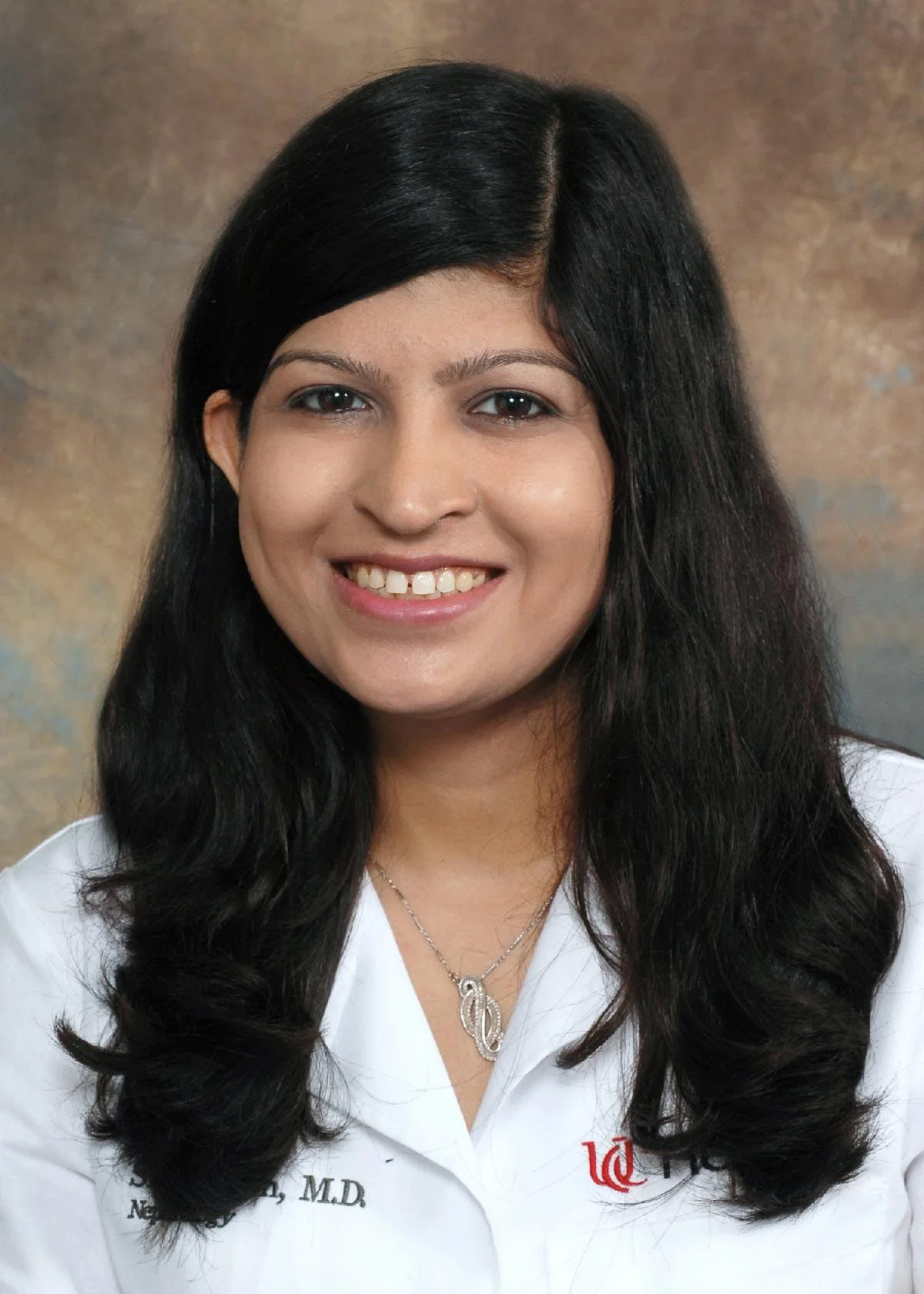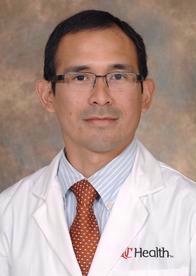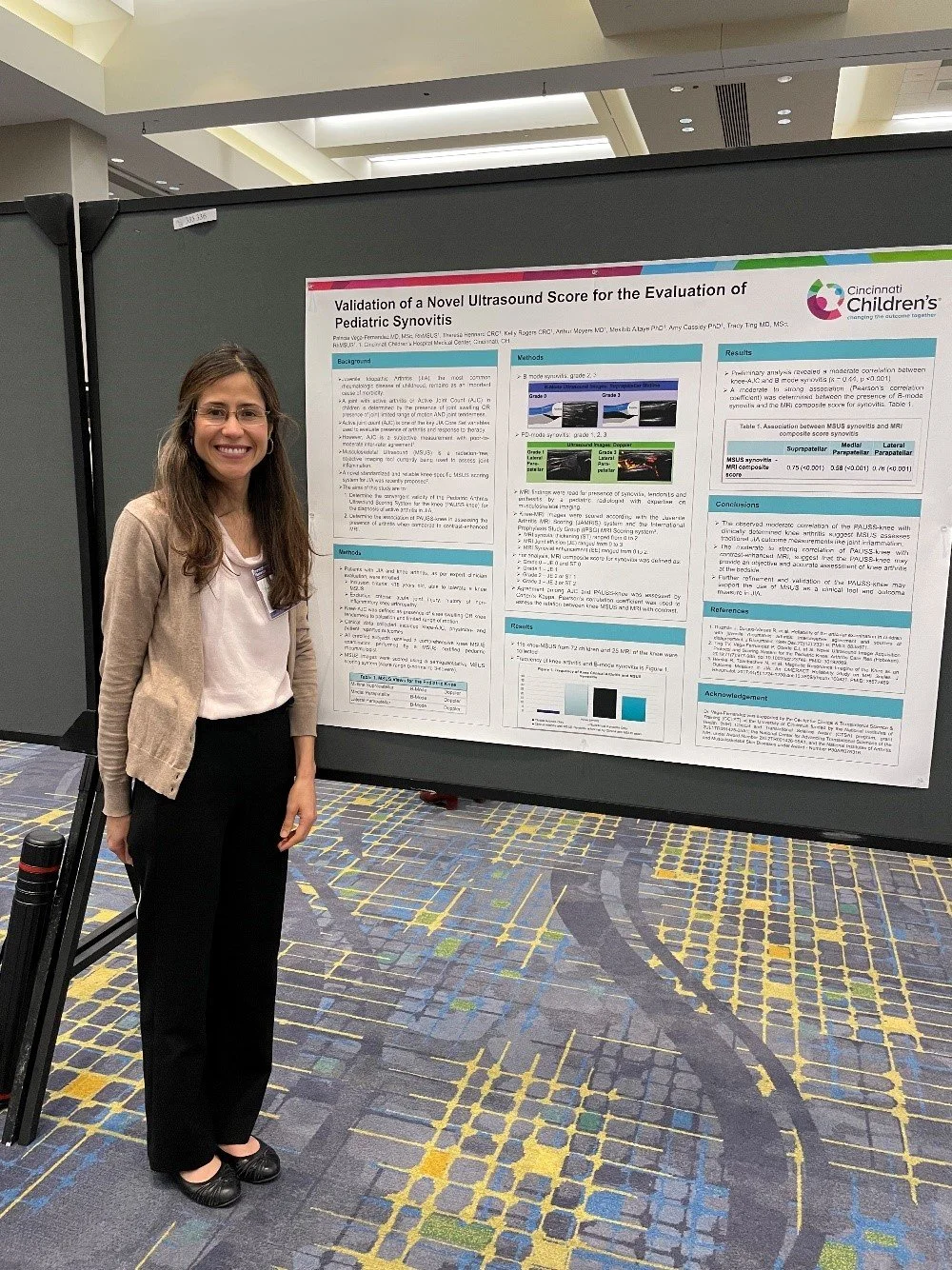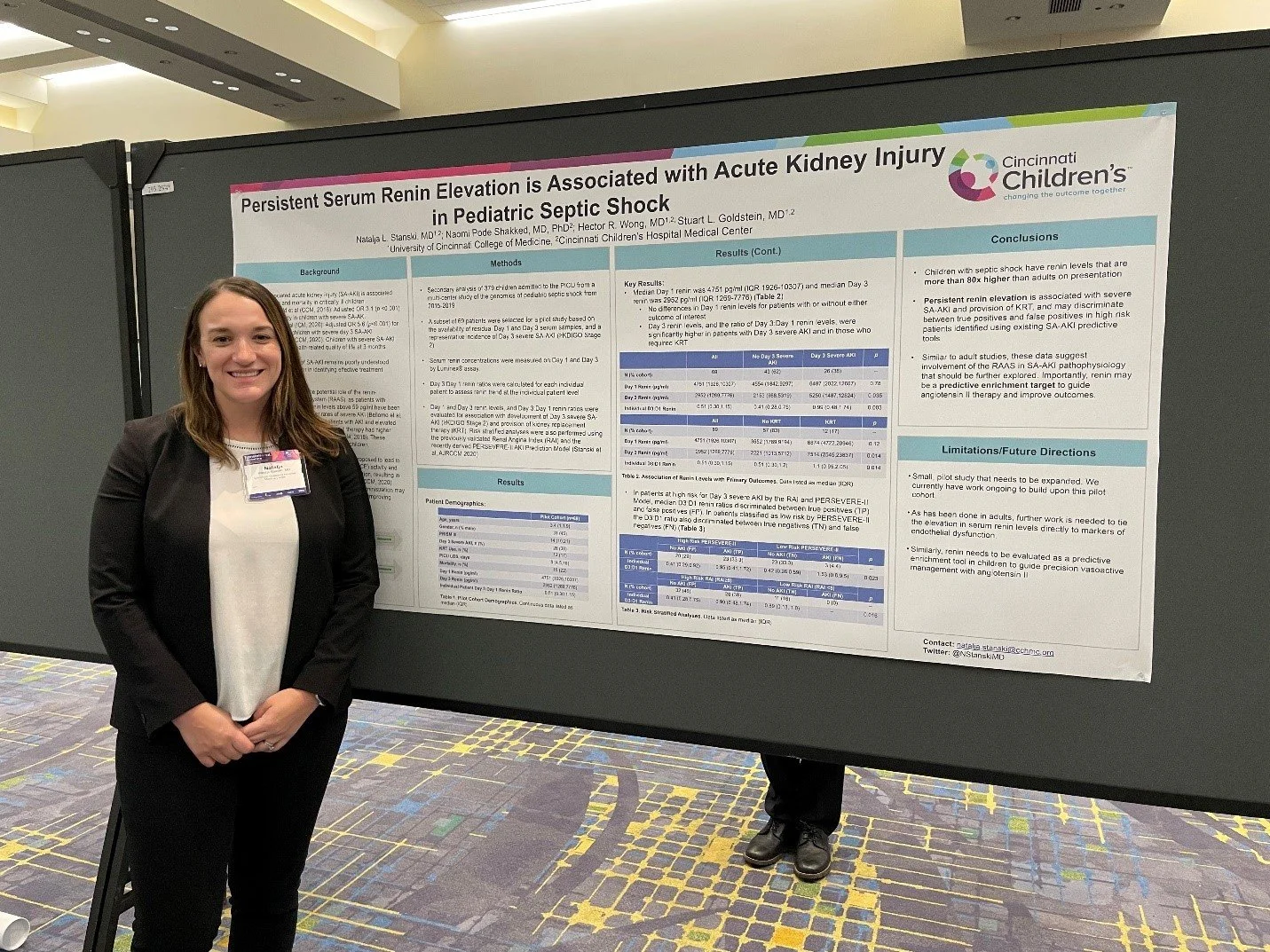K Scholar, Alexandra Corley, MD, MPH, FAAP, assistant professor in the CCHMC Division of General and Community Pediatrics, was lead editor for a special issue containing a collection of articles about novel educational innovations focused on antiracism in the Journal of Academic Pediatrics. Dr. Corley led the process of the call for articles, article review/scoring/selection, and led our group of reviewers in composing corresponding narrative pieces that book-end the article collection. Click here for the full journal article. The journal has a podcast with an episode that highlights the special issue here.
K Scholar, Chidiogo Anyigbo, MD, MPH, published as 3rd author in JAMA Pediatrics
K Scholar, Chidiogo Anyigbo, MD, MPH, assistant professor in the CCHMC Division of General and Community Pediatrics published as 3rd author in JAMA Peds "Behavior Problems in Low-Income Young Children Screened in Pediatric Primary Care." JAMA Pediatr. 2023 Oct 16. doi: 10.1001/jamapediatrics.2023.4229. Epub ahead of print. PMID: 37843850) that has been featured on the CCHMC science blog.
Key points outlined in the article:
Question: What are the trajectories of emotional and behavioral adjustment among children 2 to 6 years of age visiting pediatric primary care and what variables are associated with differential courses?
Findings: Of 4 trajectory groups identified in this cohort study of 15 218 children, 3 reflected clinically elevated levels of emotional and behavioral problems over time. Relative to the nonelevated group, children in the elevated groups were more likely to be male, White, receive public insurance, and have a social need and a caregiver with depression.
Meaning: Differential patterns of trajectories over time underscore the importance of early identification of emotional and behavior problems in pediatric primary care; mitigation of social needs and depression among caregivers may lead to improved trajectories.
KL2 Scholar, Dr. Chidiogo Anyigbo, Presents at the 2023 Fall CTSA Program Annual Meeting
K Scholar, Chidiogo Anyigbo, MD, MPH, assistant professor in the CCHMC Division of General and Community Pediatrics Dr. Anyigbo's poster "Household Health Related Social Needs, Neighborhood Factors, and Infant Behavioral Functioning at 6 Months" was accepted and will be presented at the 2023 Fall CTSA Program Annual Meeting held November 6 - November 8, 2023.
K Scholar Program Graduate Jones has been named to the Business Courier's 2023 Forty Under 40 class
K Scholar Program Graduate, Laquita Jones, DO in the Division of Oncology, Cincinnati Children’s Hospital has been named to the Business Courier's 2023 Forty Under 40 class. This honor recognizes Greater Cincinnati’s next generation of young leaders and innovators. LaQuita is among 40 individuals, under the age of 40, who are professional rising stars and making great strides in shaping our community's future. For more information regarding this honor click here.
K Scholar Graduate, Jose, Awarded K23
K Scholar Graduate, Arun Jose, MD, assistant professor, UC Department of Internal Medicine, Division of Pulmonary, Critical Care and Sleep Medicine, was awarded a National Heart, Lung and Blood Institute K23 for his project entitled, "Biomarker Discovery in Portopulmonary Hypertension".
Portopulmonary hypertension (PoPH) patients suffer from a cardiovascular disease with very high morbidity and mortality that occurs exclusively in those with underlying liver disease. Although both the incidence and prevalence of chronic liver disease and PoPH have been increasing, the mechanisms by which liver dysfunction leads to PoPH, the optimal markers of disease, and the best treatments to improve outcomes in this high-risk population, are all poorly developed. This work, focusing on dysregulated vascular endothelial growth factor signaling and hepatocellular dysfunction, addresses this urgent and growing clinical need by identifying and developing new biomarkers that will enable more accurate diagnosis, improved risk stratification, and more precise treatment for patients with PoPH, ultimately leading to improved clinical outcomes in this high-risk population.
KL2 Scholar, Dr. Alexandra Corley, Presents at Cincinnati Children’s Inaugural Research Symposium
Drs. Jones, Corley, and Cheng at the Cincinnati Children’s Inaugural Research Symposium
KL2 Scholar, Alexandra Corley, MD, MPH, assistant professor in the CCHMC Division of General and Community Pediatrics, was chosen to present at the Cincinnati Children’s Inaugural Research Symposium on May 5, 2023. Dr. Corley was joined by Academic General Pediatrics Fellow and mentee, Margaret Jones, MD.
Drs. Corley and Jones’s presentation was entitled, “Racial Inequities in Continuity of Care at Pediatric Academic Primary Care Clinics”, highlighting their important work of understanding structural barriers to provider continuity in primary care. Through their research, they found lower instances of continuity among Black patients in local primary care centers, reflecting structural barriers.
K Scholar, Jose, Publishes New Article in Heart Failure Clinics
K Scholar, Arun Jose, MD, MS, assistant professor in the Department of Internal Medicine, University of Cincinnati, recently published an article in Heart Failure Clinics titled, “Struggling between liver transplantation and portopulmonary hypertension”. To view the full article, please click here.
Portopulmonary hypertension (PoPH) is a progressive, ultimately fatal cardiopulmonary disease that occurs exclusively in patients with underlying portal hypertensive liver disease. Although the mainstay of treatment in PoPH is targeted pulmonary vascular therapy, liver transplantation (LT) can be highly beneficial in select patients. This article, part of a featured issue on the challenges in pulmonary hypertension, reviews the rationale for medical therapy versus LT in PoPH, highlighting important clinical considerations and offering guidance to providers struggling to determine the optimal treatment approach for their PoPH patients.
K Scholar Graduate, Shah, Chosen to Speak at the Women in Nephrology – India Conference
Story released by the University of Cincinnati Dean’s List Weekly Newsletter. Story features CCTST K Scholar graduate, Silvi Shah, MD.
K Scholar Program graduate, Silvi Shah, MD, associate professor in the Department of Internal Medicine, Division of Nephrology and Hypertension, was invited to be a speaker by the Women In Nephrology – India conference on August 13, 2022. Shah’s presentation was titled, “Donor-derived cfDNA: Can it Improve Monitoring of Graft Kidney?”
An offshoot of the International Society of Nephrology, Women In Nephrology was founded in 1983 and has successfully helped women to nurture their careers in this field. This conference encompasses a pre-congress workshop, panel discussions, debate and a large platform for research work share.
Shah is a physician-scientist whose research focuses on women’s health, including pregnancy, sex disparities in kidney disease, and kidney health in cardiovascular disease. She is supported by the K23 career development award from the National Institutes of Health to study sex differences in cardiovascular disease in patients on dialysis. Shah serves as a co-editor of American Society of Transplantation e-news and leads the American Society of Nephrology’s “Women’s Health and Research in Nephrology” community.
K Scholar Graduate, Huaman, Awarded National Heart, Blood, and Lung Institute (NHLBI) R01
K Scholar program graduate, Dr. Moises Huaman, associate professor in the Department of Internal Medicine, Division of Infectious Diseases, was recently awarded a National Heart, Lung, and Blood Institute (NHLBI) R01 for his project titled, "Coronary Atherosclerosis and Immune Activation in HIV and Tuberculosis Infection".
Through this project, Dr. Huaman and colleagues will define the role of latent tuberculosis infection as a contributor of atherosclerotic cardiovascular disease risk and immune activation in persons living with HIV. The project will be conducted in collaboration with Drs. Claire Chougnet, Sandra Andorf, Bin Zhang at Cincinnati Children’s Hospital Medical Center, Dr. Alberto La Rosa at Impacta Peru CTU, Dr. Carlo De Cecco at Emory University, and Dr. Chris Longenecker at University of Washington.
K Scholar, Basu, Awarded National Institute of Mental Health (NIMH) R21
K Scholar, Dr. Ishita Basu, assistant professor in the Department of Neurosurgery, was recently awarded a National Institute of Mental Health (NIMH) R21 for her project titled, “A Neural Population Model-Based Characterization and Modulation of Neural Oscillations Underlying Cognitive Control in Healthy and Depressed/Anxious Human Subjects".
Through this project, researchers will characterize brain oscillations that are disrupted in depressed/anxious human subjects compared to healthy counterparts while performing a cognitive task involving conflict resolution. Researchers will use a biophysically inspired neural population model of the prefrontal and temporal cortical network to determine feasible neural mechanisms underlying such brain signals. They will then use this model to determine cortical electrical stimulation to modulate pathological brain oscillations towards restoration of health, and test the model predictions on human subjects while performing the conflict resolution task.
K Scholar Graduate, Shah, Named to American Society of Transplantation Committee
K Scholar program graduate, Dr. Silvi Shah, associate professor in the Department of Internal Medicine, Division of Nephrology and Hypertension, has been invited to serve on the Fellow of the American Society of Transplantation (FAST) selection committee.
The goal of the committee is to advance the field of transplantation and improve patient care through the promotion of research, education, advocacy and organ donation. FAST also recognizes members who have demonstrated an exceptional commitment to the field of transplantation as well as outstanding service to the American Society of Transplantation. Dr. Shah was inducted into FAST in 2020.
Dr. Shah’s research focuses on women’s health, including pregnancy, sex disparities in kidney disease and kidney health in cardiovascular disease. She is supported by the K23 career development award from the National Institutes of Health to study sex differences in cardiovascular disease in patients on dialysis. Dr. Shah serves as a co-editor of American Society of Transplantation e-news and leads the American Society of Nephrology’s “Women’s Health and Research in Nephrology” community.
K Scholar, Jose, 2022 PHenomenal Impact Fund for Global PH Research Award Recipient
K Scholar, Dr. Arun Jose, assistant professor in the Department of Internal Medicine, was selected for the 2022 PHenomenal Impact Fund for Global PH Research Award, for his project on the gut microbiome and circulating metabolome in pulmonary arterial hypertension (PAH).
Dr. Jose specializes in PAH, with a particular interest in the intestinal microbiome and pulmonary vascular disease due to liver disease. His current research focuses on applying next-generation sequencing techniques, metabolomics, and metagenomics to identify and develop novel biomarkers and therapeutic targets for PAH.
The PHenomenal Impact Fund for Global PH Research Award is one of two programs funded by Team PHenomenal Hope. Through this award, the organization provides investigators with grant funding for medical research that aims to improve treatments or find a cure for pulmonary hypertension (PH). PH is a rare disease that causes high blood pressure in the vessels that supply the lungs, which strains the heart as well as the lungs. The PHenomenal Impact Fund for Global PH Research Award is given to investigators who are implementing novel concepts in PH and have the potential to change the field.
K Scholar Graduate, Shah, Invited Speaker at National Heart, Lung & Blood Institute Virtual Workshop
K Scholar program graduate, Dr. Silvi Shah, associate professor in the Department of Internal Medicine, Division of Nephrology & Hypertension, was an invited speaker at the National Heart, Lung & Blood Institute virtual workshop, “Sex/Gender-Specific COVID-19 Outcomes and Management Relevant for Heart, Lung, Blood and Sleep Disorders: From Bench to Bedside.” Dr. Shah’s presentation was titled, “Hormones on Pregnancy and Sex-Specific COVID-19 Outcomes.”
The two-day scientific meeting aimed to bring together basic and clinical scientists to review the current knowledge and identify key knowledge gaps in understanding sex and gender differences of COVID-19 outcomes relevant to heart, lung, blood and sleep disorders (HLBS). The goal of the meeting was to propose strategies to facilitate translation of basic biological discoveries into clinical applications to improve the ability to develop sex- and gender-specific prevention, intervention, and implantation strategies for COVID-19-related HLBS disorders.
K Scholar, Kim, Participating in Panel Discussion for Asian American Pacific Islander Heritage Month
K Scholar Dr. Minjin Kim, assistant professor in the College of Nursing at the University of Cincinnati, will be participating in a panel discussion titled “Model Minority/Forever Foreigner: Shedding Light on Anti-Asian American Racism”. Dr. Kim will be discussing cultural humility and will be sharing stories of the racism and discrimination Asian Americans face in healthcare settings.
The virtual panel discussion will be held on Wednesday, May 25th from 7:00-9:00pm. Participants can register here.
This event is amongst a list of activities across the Greater Cincinnati area celebrating Asian American Pacific Islander Heritage Month, a nationwide celebration that centers the rich history, notable contributions, and diverse experiences of Asian Americans and Pacific Islanders. Click here for more information and to view the full list of events.
K Scholars, Vega Fernandez and Stanski, Present Posters at the Association for Clinical & Translational Science (ACTS) Annual Meeting
Dr. Patricia Vega Fernandez pictured presenting poster at ACTS conference
KL2 program graduate Patricia Vega Fernandez MD, MSc, RhMSUS, assistant professor in the Division of Rheumatology, Cincinnati Children’s Hospital and K Scholar Natalja Stanski, MD, assistant professor in the Division of Critical Care Medicine, Cincinnati Children’s Hospital presented posters of their research at the annual Association for Clinical and Translational Science (ACTS) meeting.
Dr. Vega-Fernandez’s project is titled, Validation of a Novel Ultrasound Score for the Evaluation of Pediatric Synovitis.
Juvenile Idiopathic Arthritis (JIA), the most common chronic rheumatic disease in childhood, causes substantial morbidity worldwide. Diagnosis of arthritis in children is based on the presence of joint swelling and limited range of motion and/or tenderness on palpation. However, clinical detection of active arthritis in the developing skeleton has limited agreement even if performed by an experienced clinician. Ultrasound (US) is a non-invasive and accessible diagnostic modality that is often the first-choice imaging examination in pediatrics. The objective of this study is to validate a novel Pediatric Arthritis US Scoring System (PAUSS) for the assessment of knee arthritis in JIA. The validation of the knee-PAUSS will facilitate medical decision-making process to timely diagnose and most effectively and safely treat arthritis and to improve the outcomes of children with JIA.
Dr. Natalja Stanski pictured presenting poster at ACTS conference
Dr. Stanski’s project is titled, Persistent Serum Renin Elevation is Associated with Acute Kidney Injury in Pediatric Septic Shock.
Dr. Stanski’s project examined the association between serum renin levels- a marker of renin-angiotensin-aldosterone system dysregulation- and the development of severe sepsis-associated acute kidney injury in a cohort of children with septic shock. She found that children with septic shock had very elevated serum renin levels on admission, and children who continued to have high levels at day 3 were more likely to have severe acute kidney injury and require renal replacement therapy. She also found that this trend in serum renin levels helped distinguish between true positives and false positives identified using her previously published sepsis-associated acute kidney injury prediction model that she is working to prospectively validate as part of her CT2 project. This small pilot study is the first to describe this association in critically ill children, and she is currently working to expand this work to a larger cohort.
K Scholar Graduate, Huaman, Publishes New Article in the New England Journal of Medicine
KL2 Program Graduate, Moises Huaman, MD associate professor in the Department of Internal Medicine, Division of Infectious Diseases, University of Cincinnati recently published an article titled “Early Outpatient Treatment for Covid-19 with Convalescent Plasma” in the New England Journal of Medicine. The study shows renewed promise for COVID-19 convalescent plasma as the highest effectiveness early in course of treatment.
Convalescent plasma is blood plasma derived from patients who have recovered from COVID-19.
The University of Cincinnati was one of 23 sites nationwide conducting a study on the use of convalescent plasma on COVID-19 patients. The study found a 54% relative risk reduction in COVID-19 related hospitalizations among study participants who received convalescent plasma, compared to participants who received control plasma.
“This trial provides robust data supporting the use of high-titer convalescent plasma given early during the course of the disease to prevent hospitalizations,” says Huaman, principal investigator at UC for this study. High-titer means plasma that has a lot of antibodies.
The study was conducted in collaboration with the Hoxworth Blood Center, University of Cincinnati.
“We acted early in the pandemic to provide COVID-19 convalescent plasma for clinical use when other therapies were unavailable,” says Jose Cancelas, MD, director of Hoxworth Blood Center. “As part of the University of Cincinnati, we focused our attention to create convalescent plasma to meet urgent patient needs as well as to support research related to COVID-19 infection.”
The study followed 1,181 adults with COVID-19. Half of them were given high-titer convalescent plasma that contained a mixture of SARS-CoV-2 antibodies. The other half were given placebo control plasma with no SARS-CoV-2 antibodies. None of the patients given convalescent plasma died, with 17 hospitalized within 28 days of their infection. Three patients in the placebo group died, and 37 were hospitalized within 28 days of their infection.
While the overall results showed a 54% relative risk reduction in hospitalizations of patients given convalescent plasma, Huaman says the reduction was even greater in those who received the treatment soon after the onset of COVID-19 symptoms.
“In this trial, participants were enrolled within eight days of COVID-19 symptoms and were given the transfusion within 24 hours of enrollment,” he says. “In those who received the transfusion within five days of symptoms, the reduction in hospitalizations with convalescent plasma went up to about 80%.”
Huaman says that convalescent plasma could be useful to treat COVID-19, especially in two scenarios. One of those is in settings where other medications that prevent hospitalizations, such as monoclonal antibodies and oral antivirals, are not available. The other setting would be when new variants that escape available therapies emerge. Huaman also says that what is learned from this trial is going to be important for future pandemics.
“The nice thing about this tool is that it’s adaptable and could be available globally,” Huaman says. “If you’re able to collect convalescent plasma from someone who has recovered from an illness due to the current circulating variant, those antibodies against that specific variant could help others.”
In the United States, current FDA EUA authorizes the use of COVID-19 convalescent plasma in immunosuppressed patients. The Infectious Diseases Society of America suggests considering convalescent plasma among ambulatory patients with mild to moderate COVID-19 at high risk for progression to severe disease who have no other treatment options.
K Scholar Graduate, Shah, to Speak at the Philippine Society of Nephrology's Annual Meeting
KL2 Program Graduate, Silvi Shah, MD, MS, FASN, FACP associate professor in the Department of Internal Medicine, Division of Nephrology and Hypertension, has been invited to speak on “Women’s Health and Chronic Kidney Disease: A Closer Look” at the Philippine Society of Nephrology’s annual meeting.
The meeting will be held April 25-30 with the theme “PSN @50: Soaring to New Heights.” The scientific meeting aims to provide updates on the different aspects of renal health care and provide a platform for discussion between international and local experts in recognition of the evolving care in nephrology.
Shah’s research focuses on women’s health in kidney disease, including pregnancy, sex disparities in kidney disease and cardiovascular health. She is currently supported by the K23 career development award from the National Institutes of Health. Shah leads the American Society of Nephrology’s “Women’s Health and Research in Nephrology community and is an executive member of the American Society of Transplantation’s “Women Health Community of Practice.”
K Scholar, Kim, Awarded the Association for Leadership Science in Nursing Foundation Pilot Award
K Scholar Minjin Kim, PhD, RN, assistant professor in the College of Nursing at the University of Cincinnati has been selected for the Association for Leadership Science in Nursing Foundation Pilot Award. This award will support a three-arm randomized trial evaluating the effect of mini-mindfulness and narrative (storytelling) nursing intervention to promote nurse leaders’ well-being and resilience across 5-time points. This work is a branch of the current moral injury project that Dr. Kim is working on with the researchers at CWRU and OSU, which was funded by the Ohio Nurses Foundation.
K Scholar Graduate, Huaman, Receives UC Urban Health Pathway Seed Grant Funding
KL2 Program Graduate, Moises Huaman, MD, associate professor in the Department of Internal Medicine, Division of Infectious Diseases, University of Cincinnati has received research funding from the UC Urban Health Pathway Seed Grant Program.
Huaman will receive $17,880 to support his study “Developing Interventions to Increase Awareness and Screening of Latent Tuberculosis Infection in Latinx Communities.” The project will be conducted in partnership with Hamilton County Public Health with Shanna Stryker, MD, assistant professor, Department of Family and Community Medicine, and Lisa Vaughn, PhD, professor, Department of Pediatrics, serving as co-investigators.
The Urban Health Pathway Seed Grant Program is designed to support promising research that will be leveraged for extramural grant applications. Funded proposals are those that will most successfully advance health and health equity of the residents of Greater Cincinnati region. Focus of support is on urban subpopulations, such as pediatric or geriatric populations, people with particular disabilities, or other groups that are often impacted by health inequities or disparities. The Urban Health Pathway is one of three pillars of the university’s strategic direction, Next Lives Here and aims to leverage and align the expertise of the university with strengths of the community to address issues related to the health and well-being of our region.
K Scholar Graduate, Huaman, Awarded an R03 Grant
KL2 Program Graduate, Moises Huaman, MD, associate professor in the Department of Internal Medicine, Division of Infectious Diseases, University of Cincinnati was awarded an R03 for his research project entitled "Mouse model of post-infection atherosclerosis". Dr. Huaman’s clinical and translational research focuses on the interplay between infection and cardio-metabolic diseases, with a particular emphasis in understanding how tuberculosis and common co-infections influence cardiovascular disease. Through the R03 project, Dr. Huaman and colleagues will establish and characterize an essential mouse model of post-infection atherosclerosis to study underlying immune mechanisms and discover novel targeted interventions to limit atherosclerosis progression post-infection. The project will be conducted in collaboration with Drs. David Hui, PhD and Joseph Qualls, PhD.
